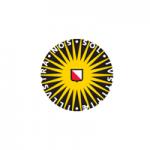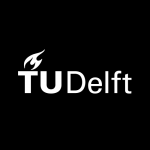项目介绍
Tampere University and Tampere University of Applied Sciences create a unique environment for multidisciplinary, inspirational and high-impact research and education. Our universities community has its competitive edges in technology, health and society. www.tuni.fi/en.
We are looking for highly motivated Doctoral Researchers (1-3 positions) across the research groups of Gamification Group, GGIS, Gameful Futures Lab which are part of the Research Centre of Gameful Realities led by Professor of Gamification Juho Hamari. The positions are associated with the Forest-Human-Machine Interplay (UNITE) Flagship’s work package on Gameful Forest Interaction for Meaningful Experiences and Practices as well as other projects broadly related to gameful technologies and sustainability at the Faculty of Information Technology and Communication Sciences (ITC).
WORKING ENVIRONMENT
The accepted candidates will work in the close collaboration of other researchers of the UNITE flagship, the members of Research Center of Gameful Realities, Centre of Excellence in Game Culture Studies as well as in the context of the larger strategic profiling area of the Tampere University in Gamification, Extended Reality and their application towards holistic sustainability.
Flagship consortium: UNITE | Forest-Human-Machine Interplay is a prestigious research Flagship consortium composed from Tampere University, University of Eastern Finland, Finnish Geospatial Research Institute FGI and Natural Resources Institute Finland. The position offers unique vantage points and entry to an ambitious consortium that represents top international scholarship in the areas of gameful technologies and bioecology. UNITE brings together the world’s leading research groups in the fields of forest sciences, geoinformation and sensor development, and gamification.
The Research Centre of Gameful Realities (RCGR) is a trans-disciplinary research centre which brings together the Faculty of information Technology and Communication Science, Faculty of Business Administration and Management and Faculty of Education at Tampere University. It is internationally revered for seminal academic and societal contributions in the areas of novel technologies such as motivational information systems (e.g. gamification, game-based learning, quantified-self, persuasive technologies), internet commerce (e.g. crowdsourcing, crowdfunding, sharing economies, game economies), new media (e.g. esports, streaming, immersive journalism) as well as human-computer interaction (VR / AR, wearables, transhumanism, user interfaces, more-than-human interaction). RCGR is one of the most prolific research centres internationally in its pursuit to wield gameful approaches towards the flourishing of the planet, people and prosperity.
See more: https://bit.ly/rcgrvideo
The main areas of research within this project are explained below and we are looking for Doctoral Research candidates who can conduct research in one or more of these areas:
In the Engage path, we focus on the development of gameful technologies to promote situated interaction between humans and nature.
In the Know path, we aim to increase the accessibility of data, information and research related to nature by means of gameful, game-based education and interactive visualisation.
In the Empathise path, we produce immersive experiences to reduce the psychological distance to environmental issues, as well as create methods positioning forest ecosystems as respected design stakeholders.
In the Care path, we study gameful ways of caring for nature and defining its’ position in human well-being.
In the Evolve path, we utilise cutting-edge technologies such as advanced robotics and AI technologies to understand the future of human-nature-machine interaction.
We are looking for candidates for one more specifically defined theme of 1) Play-Bio and for 2) open profile position where the candidate can define the scope more freely.
1) Position: Playful Relations between Human Augmentation and Biomaterials (Play-Bio)
Focus: Explore how human augmentation can foster meaningful, playful connections between humans and biomaterials, like mushrooms, wood, and bacteria, within the “Play-Bio” project, part of the UNITE flagship and funded by the Research Council of Finland.
Responsibilities: Design and develop human augmentation technologies (e.g., wearables and XR applications) for interactions with biomaterials, conduct empirical research on the impact of these interactions, and publish findings in top-tier academic venues.
Sought Qualities: Skills in prototyping (e.g., wearables, AR/VR, game design), experience with biomaterials and/or maker tools like Arduino/Raspberry Pi, and knowledge of qualitative and quantitative research methods are advantageous.
Contact: Dr. Çağlar Genç | genc.caglar@tuni.fi | Asst. Prof. Oğuz ‘Oz’ Buruk | oguz.buruk@tuni.fi
2) Position: Gameful Human-Forest Interaction
Focus: Explore and design gameful interactions with nature, using digital technologies to enhance connection and understanding of the environment.
Responsibilities: Develop gameful applications, run multi-method research (design research, psychophysiological measures), and contribute to human-nature interaction research in ecological, social, and cultural sustainability
Sought Qualities: Experience in gamification, gameful design, in design-driven methods (research through design, speculative design, critical design), aptitude for quantitative and/or qualitative empirical research (especially field/lab experiment), ability to develop software and/or hardware.
Contact: Prof. Juho Hamari | juho.hamari@tuni.fi | Asst. Prof. Oğuz ‘Oz’ Buruk | oguz.buruk@tuni.fi
We expect that the suitable candidate will have experience, background, skills and interest in the topics related primarily to the position the candidate is applying for. Candidates are expected to design studies and disseminate them in a variety of ways including publishing in academic venues, demonstrating the results in related events and also putting effort to communicate it to the general public. The work includes research planning, experiment organising, data gathering and analysis, article writing, and dissemination of results. Moreover, the candidate is expected to participate in project-wide and funding acquisition. Teaching and supervision will be negotiated based on the interests of the candidate.
REQUIREMENTS
- Applicable degree: i.e. master’s degree in relevant fields
- Useful dimensions of candidate’s background including but not limited to:
- Computer science / Human-computer interaction / Information systems
- Design (e.g., industrial product design, interaction design, graphic design, game design, communication design)
- Economics (i.e. business, marketing, finance)
- Forestry sciences / geoinformatics
- Educational sciences (especially public understanding of science)
- Applied psychology
- Tourism / leisure
- Media / communication studies
Advantageous methodological skills
- Aptitude for quantitative and/or qualitative empirical research (especially field/lab experiment)
- Understanding and experience in design driven methodologies (speculative and critical design, research through design, participatory
- Aptitude for psychophysiological and psychometric measurement
- Ability to independently develop gamified or VR environments (software)
- Ability to develop working hardware prototypes e.g., wearable, drone systems, robotics (hardware)
- design, co-design)
Advantageous qualities
- Impeccable academic article writing/preparation productivity
- Drive for rigorous and impactful research
- Drive for a career in research
- Interest in ecology, nature, forests, nature-related activities.
The candidate must, later on, enrol and need to be accepted (within the trial period) into an applicable doctoral program in the Faculty of Information Technology and Communication Sciences. Please visit the admissions page for more information on eligibility requirements. The candidate may start the enrolment to a doctoral program after the candidate has been recruited, and therefore, the candidate does not need to hold a doctoral program position before applying.
The requirements above are the qualities we envision to be suitable across projects. However, we encourage all candidates with a Master’s degree from any disciplinary background who see themselves contributing to the project to apply.
WE OFFER
The position will be filled from 1st of January, or as mutually agreed. The position is a fixed-term period of four years. A trial period of six months applies to all our new employees.
The salary will be based on both the job demands and the employee’s personal performance in accordance with the University Salary System. According to the criteria applied to teaching and research staff, the position of a Doctoral Researcher is placed on the job demands levels 2—4 . A typical starting salary for Doctoral Researchers is approximately 2,600-2,900 EUR/month. The salary increases based on experience and the progress of doctoral studies.
As a member of staff at Tampere University, you will enjoy a range of competitive benefits, such as occupational health care services, flexible work schedule, versatile research infrastructure, modern teaching facilities and a safe and inviting campus area as well as a personal fund to spend on sports and cultural activities in your free time. Please read more about working at Tampere University and working in Tampere, Finland.
联系方式
电话: +358 (0)294 5211相关项目推荐
KD博士实时收录全球顶尖院校的博士项目,总有一个项目等着你!





